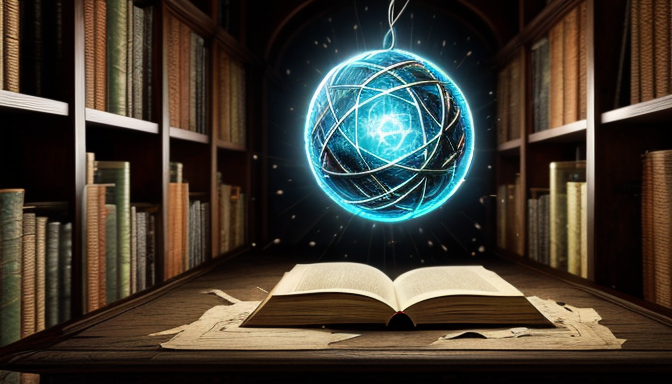Magic is the lifeblood of fantasy storytelling, a captivating force that can whisk readers away to realms where the impossible becomes possible. But have you ever wondered how authors maintain balance in their magic systems? It’s all about the intricate dance between power and limitations. From soft magic systems, where the rules are as fluid as a river, to hard magic systems that are structured like a well-oiled machine, understanding how magic operates is essential for creating compelling narratives.
In soft magic systems, the emphasis is often on the mystique of magic, allowing for a sense of wonder and unpredictability. Think of it as a beautiful painting, where the strokes are broad and the details are left to the imagination. On the other hand, hard magic systems lay down strict rules and classifications, akin to a mathematical equation that must be solved. This dichotomy shapes not just the world-building but also the character development and plot progression. Characters wielding immense power can easily become overpowered unless carefully controlled. This is where the concept of limitations comes into play.
To keep the narrative engaging, authors often impose costs on magic use. These can range from physical exhaustion to emotional turmoil, creating tension and conflict that propel the story forward. For instance, imagine a mage who can summon fire but risks burning their own essence in the process. This adds layers to the character and their journey, making the reader question: What are they willing to sacrifice for power? Ultimately, the art of balancing power in magic systems lies in crafting a world where magic is both a gift and a burden, ensuring that every spell cast carries weight and significance.
Understanding Power Dynamics
When diving into the realm of magic in storytelling, it’s essential to grasp the power dynamics that govern how magic functions. Think of magic as a double-edged sword; it can either empower or devastate, depending on how it’s wielded. In fictional settings, magic systems can be categorized broadly into two types: soft magic and hard magic. Soft magic is often mysterious and undefined, serving as a plot device that can create awe and wonder but may also lead to inconsistencies if not handled carefully. On the flip side, hard magic systems are structured with clear rules and limitations, allowing readers to understand the mechanics behind the magic and its implications on the story.
Understanding how these systems work is crucial for character development. For instance, a character who possesses immense magical abilities might struggle with the responsibility that comes with such power. This internal conflict can lead to compelling character arcs that resonate with the audience. Additionally, the consequences of using magic—be it physical, emotional, or social—add layers to the narrative, making the stakes feel real and engaging.
Moreover, the classification of spells and the traditions surrounding them can further enrich the story. Consider a world where spells are divided into categories such as offensive, defensive, and utility. This classification not only helps in world-building but also allows for strategic interactions among characters. For example, a character skilled in defensive spells might be crucial during a climactic battle, showcasing how power dynamics can shift the narrative’s direction.

Establishing Limitations and Costs
When it comes to crafting a compelling magic system, limitations and costs are the unsung heroes that elevate a narrative from mundane to magnificent. Think of magic like a powerful engine; without proper fuel and maintenance, it can become a chaotic beast. In fictional settings, the way magic operates can vary significantly, ranging from soft magic systems—where rules are vague and often bend to the plot—to hard magic systems, which are governed by strict laws and defined mechanics.
Establishing these limitations is crucial. For instance, consider a character who wields the ability to manipulate time. If there are no repercussions for their actions, the stakes diminish, making the story less engaging. By imposing costs—like physical exhaustion, emotional turmoil, or even the risk of temporal paradoxes—you create a rich tapestry of conflict and tension. These costs can manifest in various ways:
- Physical Exhaustion: Each spell drains energy, leaving the caster vulnerable.
- Emotional Toll: Using magic might bring about feelings of guilt or despair.
- Social Consequences: Magic use could lead to societal rejection or fear.
Moreover, different spell classifications can further enforce these limitations. For example, a healing spell might require a portion of the caster’s life force, while a fireball could consume precious resources. By weaving these elements into your narrative, you not only enhance character arcs but also keep readers on the edge of their seats. In the world of magic, the balance between power and cost is what truly makes the story shine.
Frequently Asked Questions
- What are the key elements of a balanced magic system?
A balanced magic system typically includes a clear set of rules, defined limitations, and consequences for using magic. This ensures that characters face challenges and that their abilities don’t overshadow the narrative.
- How do limitations enhance storytelling?
Limitations create tension and conflict, making the story more engaging. They force characters to make tough choices, which can lead to significant character development and plot twists that keep readers on the edge of their seats.
- Can magic systems evolve throughout a story?
Absolutely! An evolving magic system can reflect character growth and changing circumstances within the narrative. As characters face new challenges, the rules of magic may adapt, adding layers of complexity to the story.
- What role do consequences play in magic use?
Consequences are crucial as they provide stakes for characters. If magic comes without a cost, it can diminish the story’s tension. By imposing consequences, you create a more immersive experience that resonates with readers.

Recent Comments